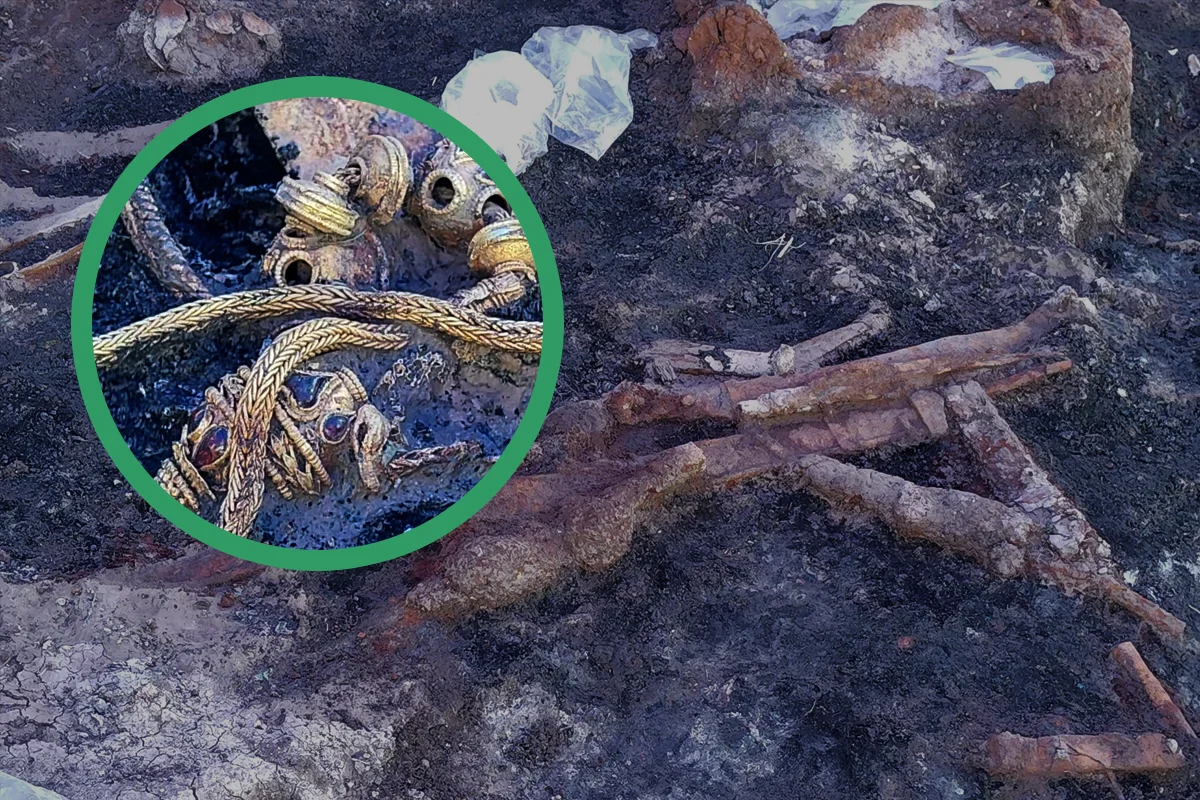Archaeologists have uncovered a Thracian warrior’s tomb in the Topolovgrad Municipality of southern Bulgaria.
Excavations were led by Daniela Agre, an archaeologist at the Thracian Department of the National Archaeological Institute.
According to a press statement by the Topolovgrad Municipality, the tomb contains the burial of a Thracian warrior, which was found in the village of Kapitan Petko Voyvoda.
The Thracians were an Indo-European people that emerged during the early Bronze Age. During the Macedonian Wars, the Thracians came into conflict with the Roman Republic and were annexed into a permanent Roman client state.
Thracians often served in the Roman auxiliary forces as non-citizen troops, especially in cavalry and light infantry roles. After completing their term of service, Thracian soldiers were settled in Roman colonies or granted land, further integrating into Roman society.
According to the archaeologists, the warrior’s tomb dates from the 1st century AD and contains ornate grave goods and funerary offerings. These include several weapons, a gold diadem, a decorative knife, a breastplate, a gold necklace, and several semi-precious stones.
Daniela Agre explained that the tomb contents are the warrior’s battle equipment, including a hunting knife adorned with precious stones and motifs unique to the Roman era, with no other known examples in Bulgaria.
Excavations adjacent to the burial also found the skeletal remains of a horse, indicating that the warrior was a Thracian horseman as often seen depicted in ancient reliefs across the Roman world.
The recovered objects and artefacts are being sent to the museum in Topolovgrad, where they will be conserved under police protection until a permanent display is arranged.
Header Image Credit : Topolovgrad Municipality
Sources : Община Тополовград







